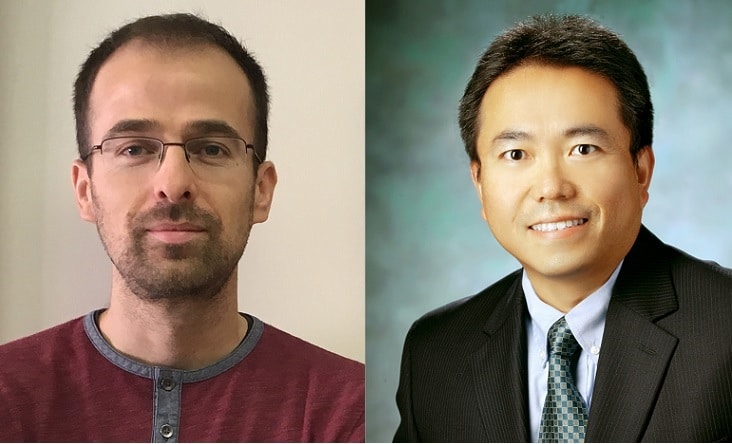AFTD Pilot Grants Highlight Emerging Approaches to FTD Research

AFTD awarded its 2018 Pilot Grants to Paschalis Kratsios, Ph.D, of the University of Chicago, and Liam Chen, Ph.D., of Johns Hopkins University. The Pilot Grant program annually confers funding to early-career investigators focused on FTD.
“AFTD’s Pilot Grants lay the groundwork for tomorrow’s scientific breakthroughs by providing seed funding for innovative research projects,” said Debra Niehoff, Ph.D., AFTD’s research manager. “The program exemplifies the way AFTD prioritizes cutting-edge science in the future of FTD research.”
Dr. Kratsios received the 2018 Basic Science Pilot Grant. He will use the funds to re-engineer the genome of the roundworm Caenorhabditis elegans in order to study human disease-causing mutations. By developing transgenic worms with the C9orf72 mutation – the most common seen in FTD – Dr. Kratsios hopes to learn why the gene defect has such a toxic effect on brain cell degeneration.
“Genetically engineered mice have been a mainstay in FTD research,” Dr. Niehoff said. “Ultimately, this new animal model could point to new strategies for developing FTD treatments.”
Dr. Chen received the Susan Marcus Memorial Fund Clinical Research Pilot Grant. He plans to examine the transcription of information needed to make proteins encoded in genes into the molecular messenger RNA (mRNA).
“Before it can serve as a template for protein synthesis, mRPA first be edited by cutting and sewing the needed for a job, just as a film editor splices footage to craft a movie,” Dr. Niehoff said. “In healthy brain cells, the protein TDP-43 acts as a quality control manager during the editing process, but TDP-43 oversight is lost in FTD. As a result, the mRNA contains ‘extra footage’ that can lead to the formation of defective proteins.”
Dr. Chen will attempt to identify these extraneous pieces of RNA, called cryptic exons, in postmortem FTD brain tissue. FTD-specific cryptic exons could potentially serve as biomarkers or starting points for future drug development.
By Category
Our Newsletters
Stay Informed
Sign up now and stay on top of the latest with our newsletter, event alerts, and more…
